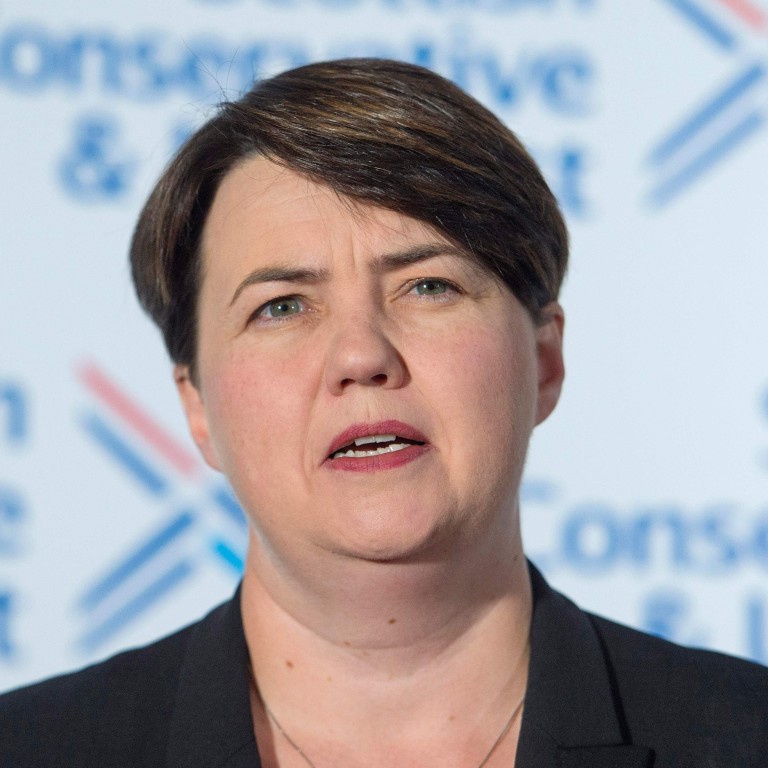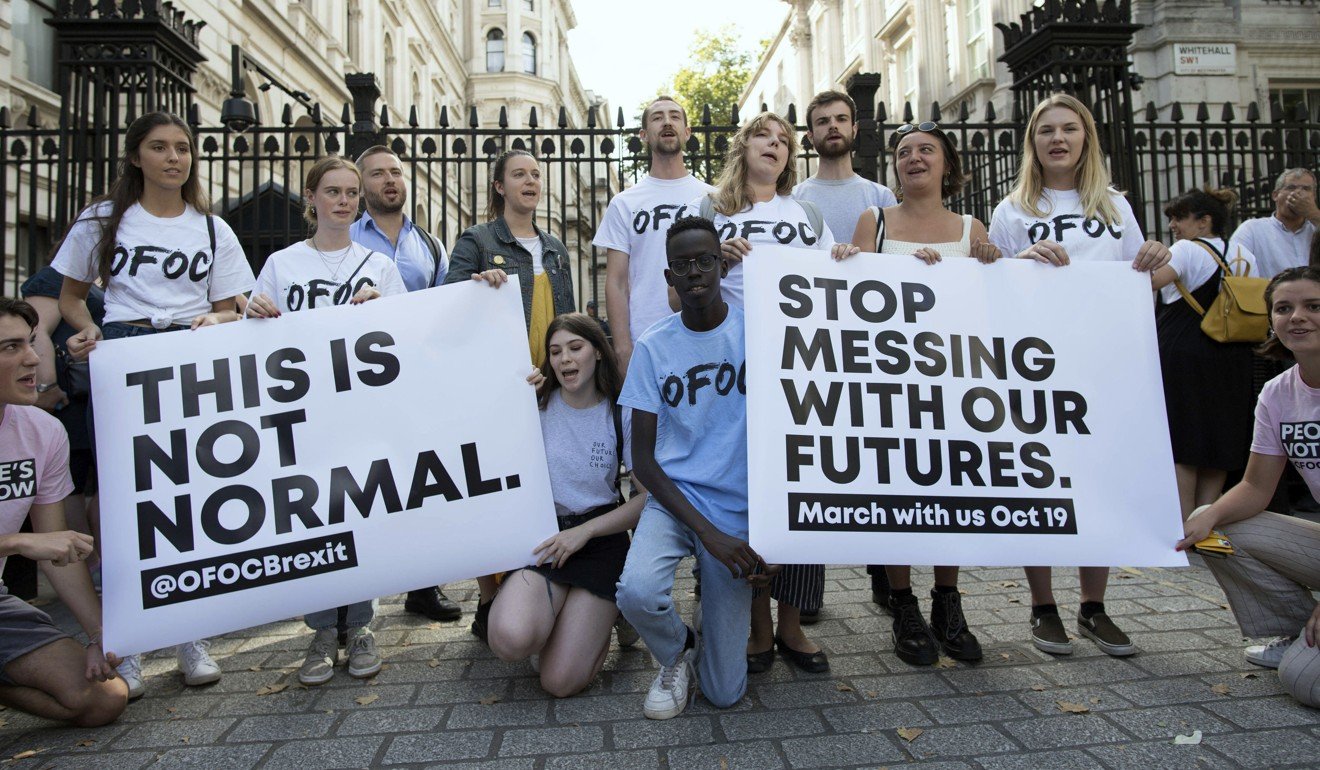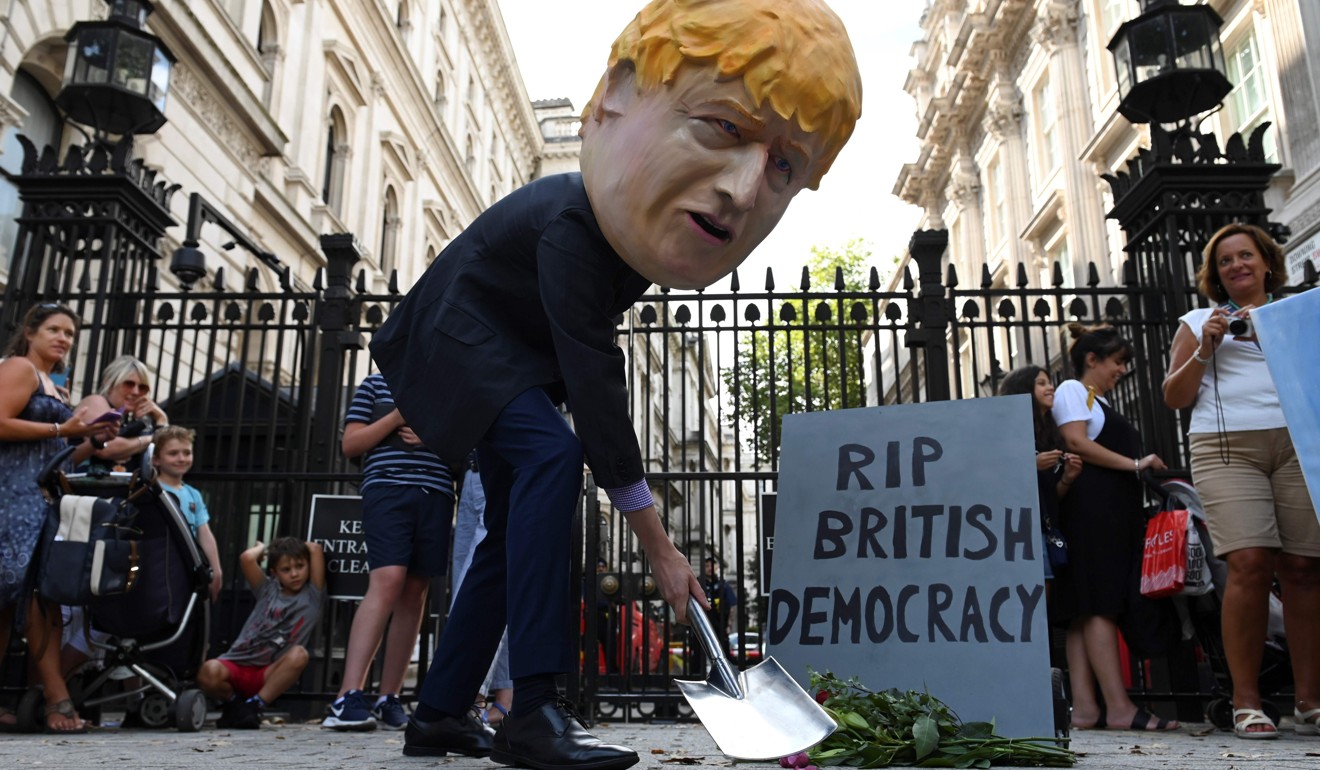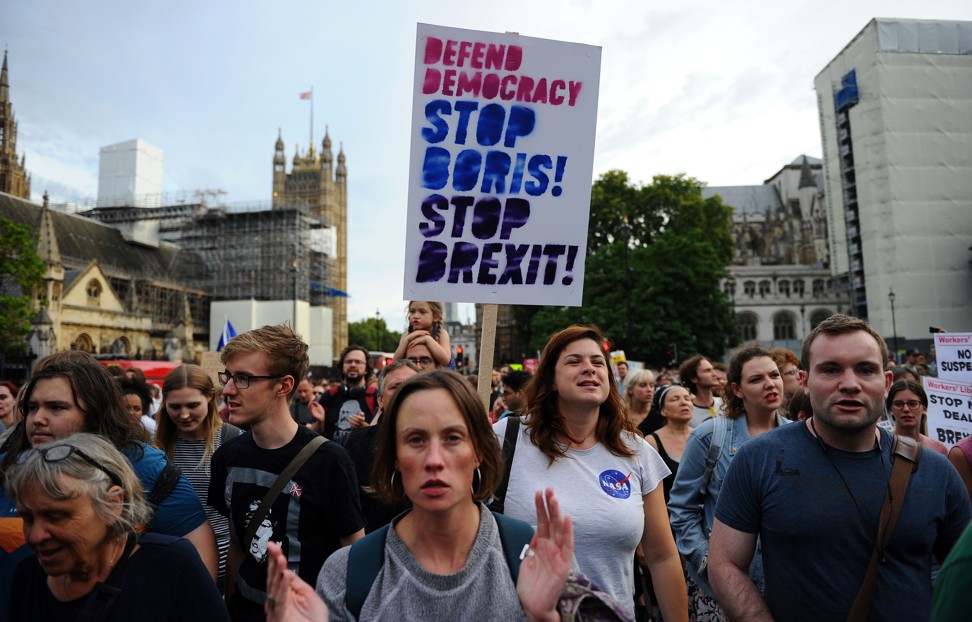
Allies of British prime minister Boris Johnson resign amid outrage over Parliament suspension
- The resignation of Ruth Davidson, the Scottish Conservative leader, and another senior Conservative in the House of Lords, was a sign of rising worry within Johnson’s ranks
The resignation of Ruth Davidson, who had been touted as a future prime minister, along with another senior Conservative in the House of Lords, was a sign of rising worry within Johnson’s ranks that the move to suspend Parliament was sidelining Britain’s elected representatives during one of the biggest political crises in generations.
It came after protesters jammed streets in cities around the country, including in London, Edinburgh and Manchester. Outside of the Parliament, demonstrators chanted, “stop the coup!”.
A petition calling for the government to stop the suspension quickly surged past 1 million signatures.
Johnson sparked a torrent of criticism following his decision to ask Queen Elizabeth to suspend Parliament for five weeks, dramatically shortening the time lawmakers have to try to block a no-deal Brexit.
But Johnson’s allies – the ones who were not quitting – were quick to dismiss the concerns on Thursday.
Jacob Rees-Mogg, the leader of the House of Commons, dismissed what he called the “candyfloss of outrage” over the temporary shuttering of the legislature, using the British term for candyfloss. “I don’t think there is any attempt to railroad,” he told the BBC on Thursday, insisting that Johnson simply wanted to get on with his domestic agenda.
In Davidson’s resignation letter, the charismatic leader said she was primarily stepping down to spend more time with her son and partner, but also mentioned the “conflict I have felt over Brexit”.
Is UK democracy dead? Johnson’s critics cry ‘coup’ at Brexit gambit
Davidson’s departure after eight years leading the Scottish wing of the party is a major blow for the Conservatives, whose fortunes she helped to turn around in Scotland.
In the last general election, the Conservatives won 13 seats in Scotland – not an insignificant number for a party that currently has a working majority of just one.
Davidson’s resignation came soon after that of George Young, who left his post as a government whip in the House of Lords, saying he was “very unhappy” with Johnson’s shuttering of Parliament.

On Thursday, David Lidington, the effective deputy prime minister in the previous administration of Theresa May – who remains a nominal ally of Johnson – said that the suspension was “not a good way to do democracy” and “sets a very bad precedent for future governments”.
He told the BBC that if the opposition Labour Party had done something similar “some of my Tory colleagues who are cheering at the moment would be turning purple with rage.”
Johnson’s government insists that they aren’t doing anything unusual and it is normal for a new prime minister to suspend Parliament ahead of the queen’s speech presenting the country’s legislative agenda.
What is prorogation? A simple guide to what is happening in UK politics
It generally does happen every year, but the length of the suspension – the longest since 1945 – and the timing have drawn widespread criticism.
John Bercow, the speaker of the House of Commons, has called it a “constitutional outrage”.
Parliament will effectively be suspended from no later than September 12 to October 14, meaning opponents who want to stop a no-deal Brexit by either passing new legislation or calling a vote of no-confidence now have much less time to act.

Others are seeking legal advice about challenging Johnson’s decisions through the courts, including the former Conservative prime minister John Major. Gina Miller, the business executive who in 2017 won a high profile legal challenge over how the British government could start the Brexit process, has also said she will try to block prorogation through the courts.
Some have accused Johnson of dragging the queen into the crisis by asking her to prorogue Parliament at this momentous time in the nation’s history.
Rees-Mogg, who met with queen on Wednesday in Scotland where she is on holiday, to request the suspension, said that the queen “can’t pick and choose the advice she takes”. He said that a statement is read out in front of her and she simply says “approved”.


